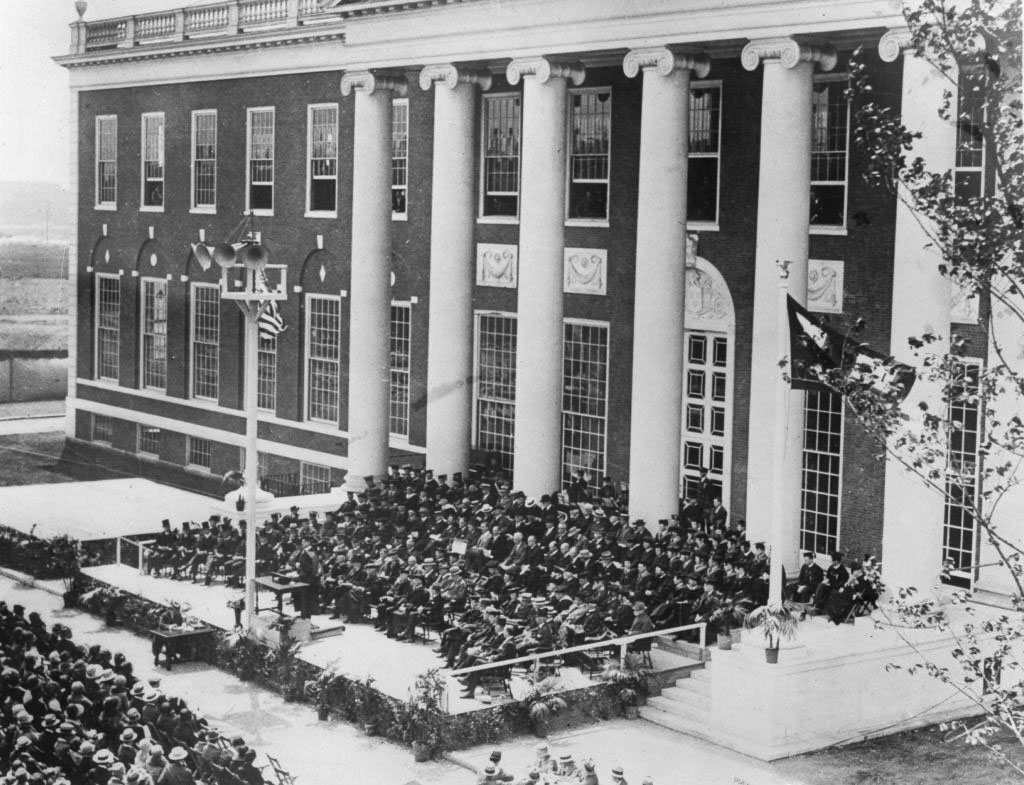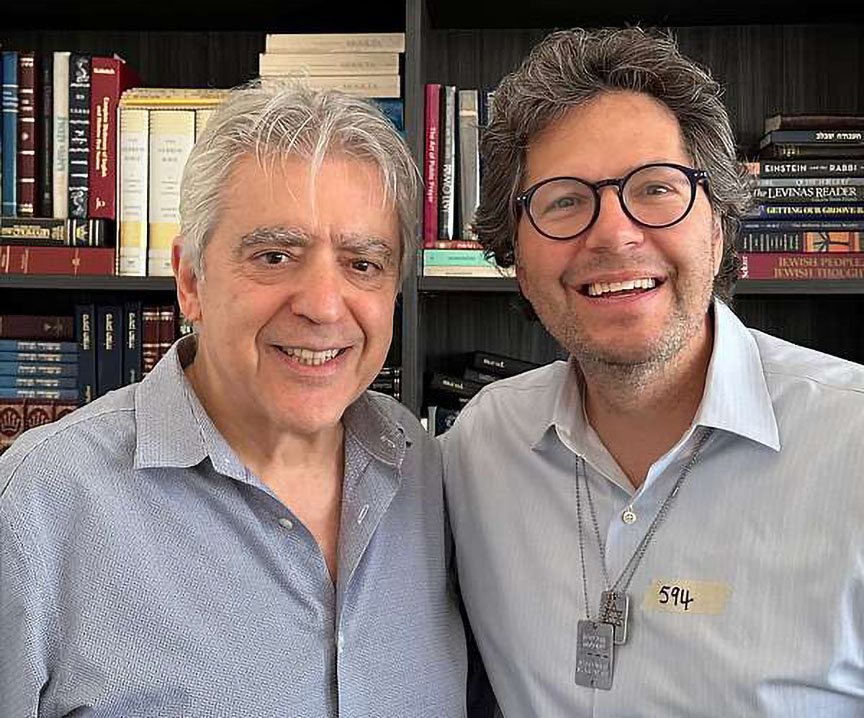Nathan Codrey is a tough man to get ahold of.
The former assistant food and beverage director at the Hotel Shangri-La is the only person who claimed to have heard hotel owner Tehmina Adaya say she wanted to eject the “f—ing Jews” from the pool at the hotel she and her family own. But when the case went to trial, he didn’t appear in court as a witness.
In order to avoid the agents sent by Adaya’s attorneys to subpoena him, Codrey first holed up in his apartment in downtown Los Angeles and instructed his building’s security guard not to let anyone up to see him. He later temporarily relocated to a site he wouldn’t disclose, but told the Journal it was outside of California, which meant he could not be served.
Codrey gave testimony in pretrial deposition — which was read in court in his absence — but even that had to be completed on two separate days in 2011. He ended the first session abruptly after becoming uncomfortable with what he called “the angry, finger-pointing tone” used by one of the lawyers for the Shangri-La. (Codrey resumed his deposition, accompanied by his own lawyer, two weeks later.)
And despite getting calls from various news outlets both during the 2012 trial and during the two-year process of appealing the verdict, Codrey — whose testimony was key to the jury’s decision to award almost $4 million in damages and legal fees to the plaintiffs and their lawyers — has been silent, all but invisible, and even now nearly impossible to find.
Even for the Journal, which has covered the Shangri-La case more closely than any other news outlet, finding Codrey took serious digging. And though he spoke with the Journal once on the phone in 2013, he later said he didn’t want those comments on the case to be quoted.
“I stand behind my deposition,” Codrey told the Journal on Aug. 14. “What I told was the truth, and I know it’s the truth. Tehmina’s lawyers are just trying to discredit my character.”
That’s precisely what the new lawyers from Gibson, Dunn & Crutcher representing Adaya and the Shangri-La in the appellate court appear to be doing. In their brief, they called Codrey’s deposition testimony “inherently unreliable” and said that the account he gave to the partygoers of what Adaya told him was “inflammatory (and false).”
Adaya’s lawyers in the jury trial also took direct aim at Codrey. Philip Black, the lawyer who deposed Codrey in 2011, asked him about all sorts of episodes from his past — many of them involving Codrey’s use of alcohol, including a driving under the influence charge that led to a suspension of his driver’s license. Black also quizzed Codrey about his having been terminated from his post at the Shangri-La for drinking on the job. Codrey, in his deposition, did not deny drinking while on the job at the Shangri-La, but maintained that everyone else at the hotel did, as well, including Adaya and the managers who worked for her.
Codrey was born to a Jewish mother and raised Christian by two adoptive parents, and he considers himself to be half-Jewish (although not Jewish by religion). And though he was not a party to the lawsuit, he testified in his deposition to hearing Adaya tell him that if her family found out “that there’s a Jewish event here, they will pull money from [her] immediately.”
If his deposition — given under oath and therefore considered under law as if delivered in the courtroom — reflected somewhat badly upon Codrey, it was highly problematic for the lawyers defending Adaya and the hotel. Codrey painted a picture of a hotel where policies were rarely agreed upon and could change in a split second, a management structure that was unclear even to those who were part of it, and an owner — Adaya — who was, on the day in question, “flipping out like a little child.”
“She [Adaya] was yelling, you know, ‘I can’t have this f—ing event,’ ” Codrey recalled. “ ‘This is ridiculous. I can’t believe that this was approved. Who approved this? Who knew about this?’ ”
The key part of Codrey’s deposition was his claim that Adaya made explicitly anti-Semitic remarks to him, which he then relayed to event promoter Scott Paletz at the July 2010 pool party organized by the local young leadership division of the Friends of the Israel Defense Forces.
The new lawyers for Adaya and the hotel argue that not only did Codrey lie about what he heard Adaya say, but that his account conflicts with testimony given by some of the plaintiffs, who claimed to have heard Adaya’s statement relayed to them by Codrey directly. In his deposition, Codrey said he told only one person — Paletz — what Adaya had said, and that he tried to ensure that nobody else overheard him.
Plaintiffs’ attorney Jim Turken and his team, recognizing that Codrey’s testimony was key to their clients’ case against the Shangri-La, took great pains to ensure that Codrey was deposed under oath. About a year before the trial, Turken twice bought Codrey lunch at The Palm restaurant downtown, where they talked about the case.
Codrey said in his deposition that he also had “eight or nine” phone conversations with Turken and members of his team. And according to the deposition transcripts, Amy Rubinfeld, another lawyer on the plaintiffs’ team from Dickstein Shapiro, made frequent objections to the questions Codrey was being asked during the deposition — objections that seem to have been as much designed to preserve a key witness’s credibility as to protect Codrey from what she called “bullying” by Black, the defendants’ attorney.
“I’m not your lawyer today, I can’t instruct you not to answer, but that’s crossing the lines of privacy in my view,” Rubinfeld said after defense attorney Black asked Codrey whether he’d been arrested in 2001 for having an open container of alcohol in public. “He’s not really allowed to ask about arrests. So it’s up to you what you want to do with that question.”
Impugning a witness’ character is often part of any lawyer’s job, as is coaching the witnesses who bolsters your side of the case.
“We did what we needed to do to,” Turken said, when asked about his contact with Codrey.
Among the parties to the Shangri-La case, Codrey occupies an unusual position. Unlike the plaintiffs and their attorneys, he never stood to gain financially from the case, nor did he have any financial assets to defend, like Adaya did.
Nevertheless, the case has had a lasting impact on Codrey’s life and work. In the wake of the incidents, Codrey was fired from his job — an act he felt was unjustified and illegal. He failed to file a wrongful termination lawsuit against the Shangri-La’s parent company in a timely manner, however, which left him with no legal recourse. When he spoke to the Journal last year, Codrey said he still resented Turken’s advising him not to file that suit — which, Codrey said, might have damaged Turken’s own efforts to sue the Shangri-La. Turken denied offering any such advice.
Codrey’s involvement in the trial impacted his personal life, too. His marriage ended, and today, when his name is typed into a Google search engine, the links that come up — from The New York Times, the Los Angeles Times and elsewhere — all still relate to the case.
Codrey said that since the trial he has had difficulty finding work in the hospitality industry, despite having worked in hotels and restaurants for more than a decade. He told the Journal that his conversations with Turken had led him to believe that the high-powered lawyers — or their well-connected clients — would help him find work after he left the Shangri-La. That never happened, which, he said, is a source of some bitterness for him.
Codrey was still working in the hospitality business in 2011 but said he left the industry sometime in the last year, three years after his firing. Asked about his current employment, Codrey declined to answer.
Rob Eshman contributed to this report.























 More news and opinions than at a Shabbat dinner, right in your inbox.
More news and opinions than at a Shabbat dinner, right in your inbox.